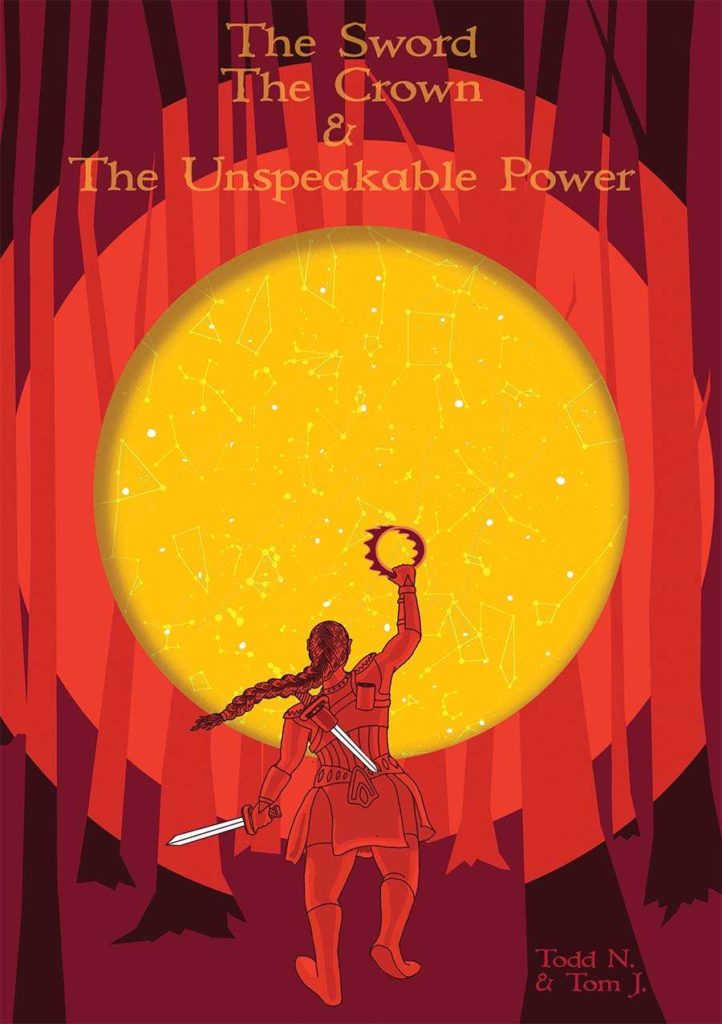I’m on a study project to improve my understanding of roleplaying games. To this end, I already have two reading projects, A Game Per Year and An Adventure Per Year. This is the third, with the goal of reading or playing 52 games made in the last few years. Originally I considered making this “A New RPG Per Week” and that’s where the number 52 comes from, even though a weekly schedule is probably not within my abilities.

The Sword, The Crown, & The Unspeakable Power is a fantasy roleplaying game based on the system in Apocalypse World where the players play unrepentant villains and their games of power and intrigue. At the start of the game, the participants create not only characters but also the world and mythology.
Apocalypse World has a massive influence on roleplaying and this is one of many games that use it’s mechanics as a basis. What’s interesting to me is that it’s not just the system that perpetuates through the many Powered by the Apocalypse games but also the writing style. The idiosyncratic expressions and language that defines Apocalypse World defines its descendants too.
Roleplaying games where the characters are assumed to be horrible people and do horrible things face several difficulties. The kind of misdeeds that a player finds fun to play varies by the individual. A specific kind of evil game content can be enjoyable to someone and an absolute turn-off to another.
This game has a good example. One of the character types is called The Screw, basically a torturer. As an advocate for games where players can consensually play all kinds of fucked up things, I’m not going to get moralistic about this. However, personally I would find The Screw difficult to play because a lifetime of valorization of torture in American pop culture has left me somewhat nauseous around the subject.
For someone else, something that’s easy for me would be an absolute dealbreaker.
In terms of how its presented, the game has a couple of fun touches. It wears its theoretical underpinnings on its sleeve. For example, at one point there’s a discussion of Max Weber’s theory of authority. The book ends with essays that give guidance and options for play. One of them, by James Mendez Hodes, explains how to decolonize your experience of the game by diversifying its cultural influences.
It says that: “Working with the influences described [South Asian, Japanese, West African] above is harder than cleaving to what everyone knows; you might get things wrong, might have to apologize and do better, might have to learn. But your game will be better for it.” An interesting development in terms of the sometimes quite categorical arguments against cultural appropriation that have been swirling around for the last few years. It’s good to have nuance in this discussion.
One of my favorite things about The Sword, The Crown, & The Unspeakable Power is that it doesn’t try to morally justify why you’d want to play such horrible things. After all, it’s all in good fun between consenting adults.